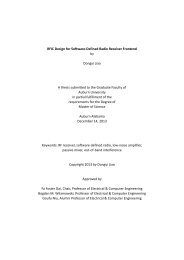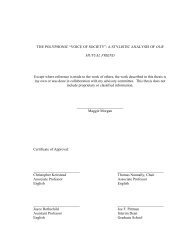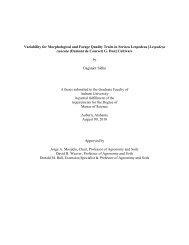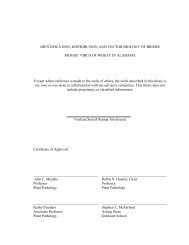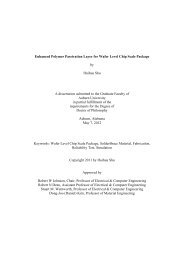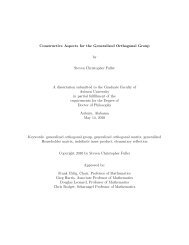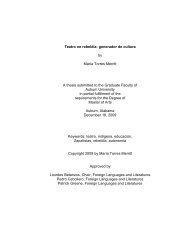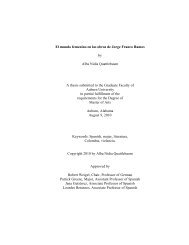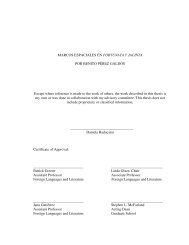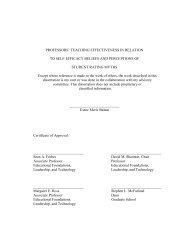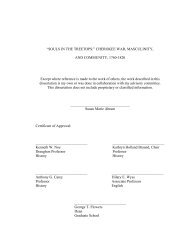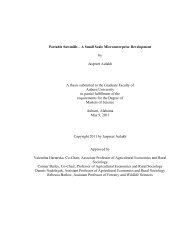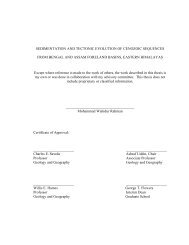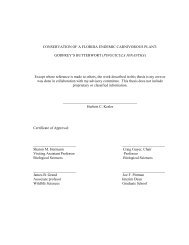the trouble with gender in othello - Auburn University Electronic ...
the trouble with gender in othello - Auburn University Electronic ...
the trouble with gender in othello - Auburn University Electronic ...
Create successful ePaper yourself
Turn your PDF publications into a flip-book with our unique Google optimized e-Paper software.
and Juliet show what happens after <strong>the</strong> comedy ends: “Plays that cont<strong>in</strong>ue<br />
beyond <strong>the</strong> po<strong>in</strong>t where comedy ends, <strong>with</strong> <strong>the</strong> old fogies defeated and a happy<br />
marriage successfully concluded, depict <strong>the</strong> condition as utterly disastrous”<br />
(Orgel 674). It should also be borne <strong>in</strong> m<strong>in</strong>d that while <strong>the</strong> <strong>the</strong>me of children<br />
subvert<strong>in</strong>g <strong>the</strong>ir parents is a <strong>the</strong>atrical convention that dates back to <strong>the</strong> Greek<br />
and Roman <strong>the</strong>ater:<br />
The degree to which this dramatized generation gap reflected<br />
actual social conditions rema<strong>in</strong>s highly problematic, but,<br />
presumably patriarchs <strong>in</strong> <strong>the</strong> audience participated <strong>in</strong> <strong>the</strong> laughter<br />
at <strong>the</strong> obtuse sennex (sic) foiled by his canny children even as <strong>the</strong>y<br />
returned to <strong>the</strong>ir homes to exert <strong>the</strong>ir patriarchal, and often<br />
tyrannical, power over <strong>the</strong>ir own offspr<strong>in</strong>g. (Lenker 22)<br />
It is a safe assumption, accord<strong>in</strong>g to historians deal<strong>in</strong>g <strong>with</strong> <strong>the</strong> time period, that<br />
no matter what happened on <strong>the</strong> stage of a comedy, <strong>the</strong> patriarchy was alive and<br />
well <strong>in</strong> Shakespeare’s England (Lenker 17-19). 1 Lawrence Stone hypo<strong>the</strong>sizes<br />
that <strong>the</strong>re was an <strong>in</strong>creased enforcement of patriarchy dur<strong>in</strong>g <strong>the</strong> early modern<br />
period:<br />
The growth of patriarchy was deliberately encouraged by <strong>the</strong> new<br />
Renaissance state on <strong>the</strong> traditional grounds that <strong>the</strong> subord<strong>in</strong>ation<br />
of <strong>the</strong> family to its head is analogous to, and also a direct<br />
contributory cause of, subord<strong>in</strong>ation of subjects to <strong>the</strong> sovereign.<br />
6



